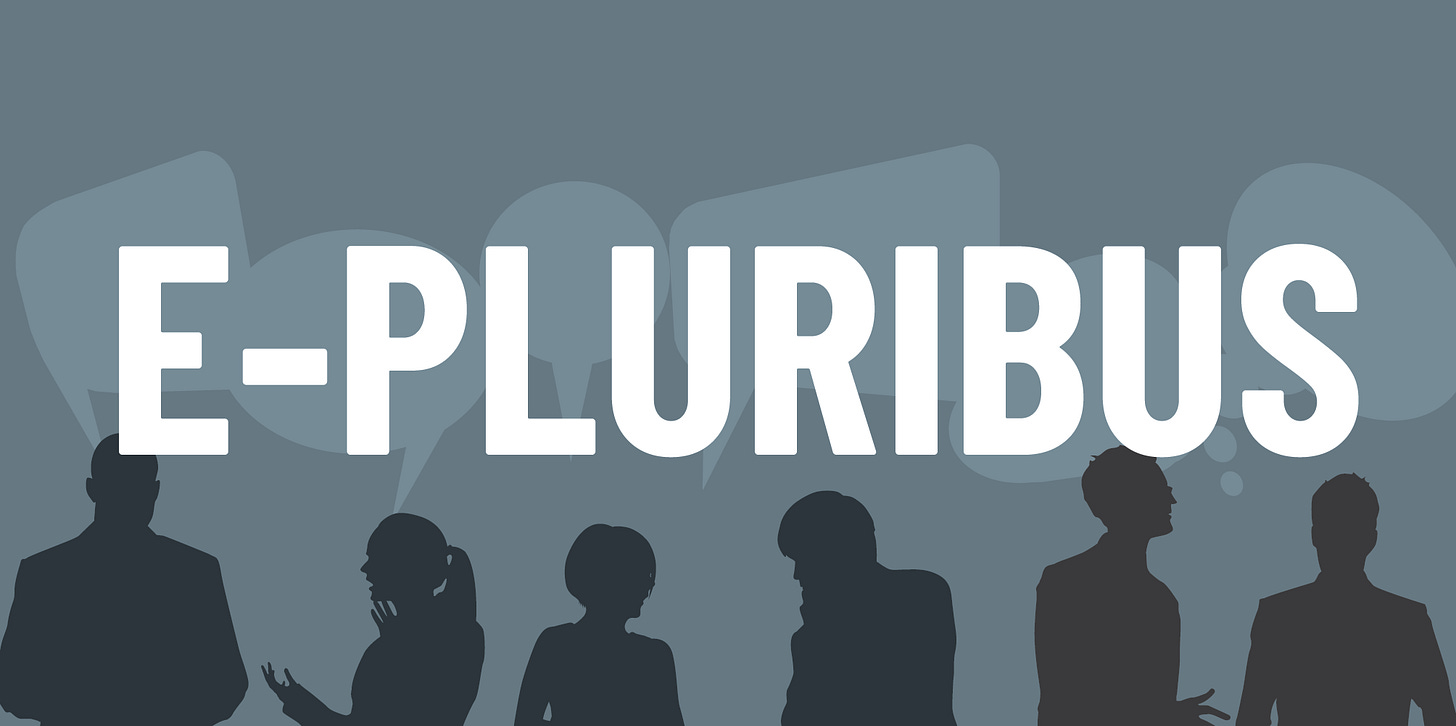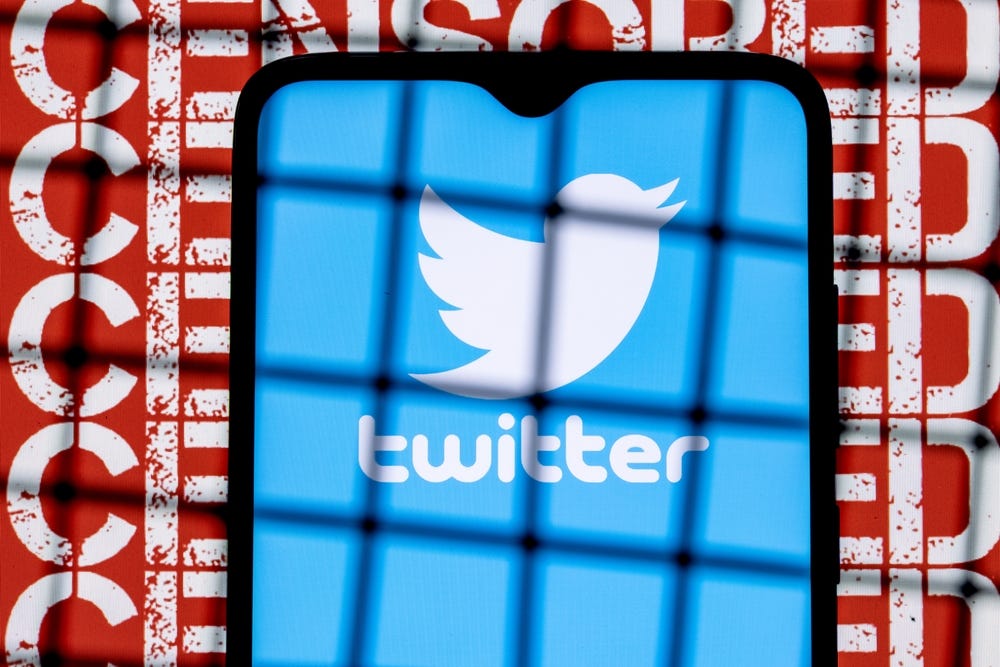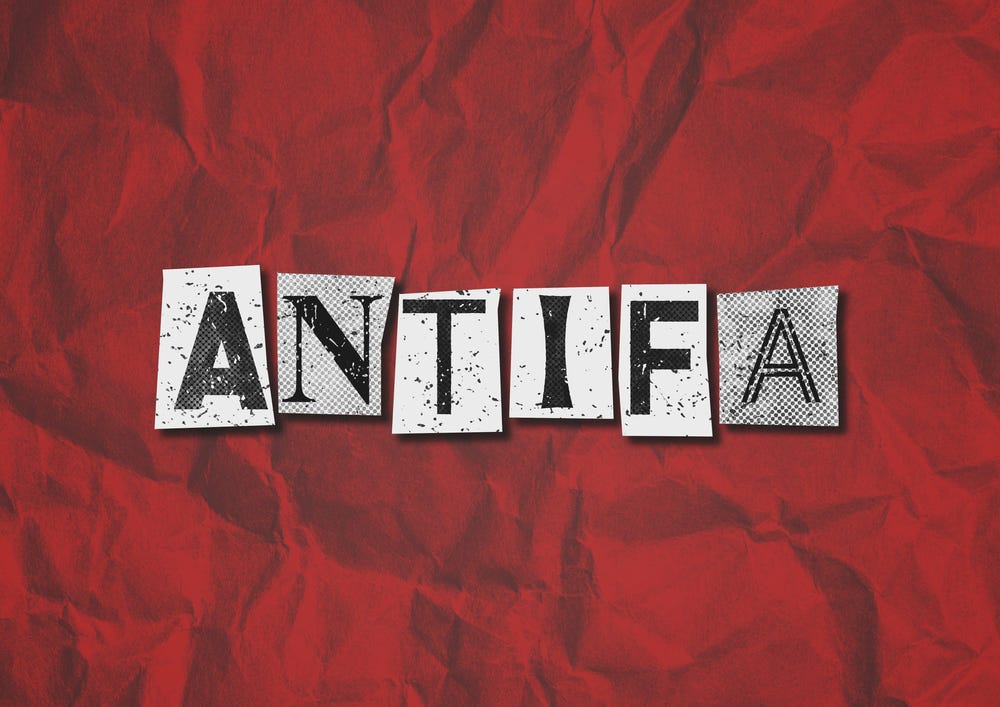E-Pluribus | February 24, 2022
Russia's war on freedom in Ukraine, Twitter's awkward mixed signals on censorship, and the risks of denouncing... Antifa violence.
A round up of the latest and best writing and musings on the rise of illiberalism in the public discourse:
Joe Lieberman: Ukrainian President Volodymyr Zelensky Challenges the West on Russian Aggression
Events in Ukraine are moving quickly, so this op-ed from Joe Lieberman in The Wall Street Journal is already a little behind the times, but remains quite relevant nonetheless. Lieberman lays out Ukrainian President Zelensky’s case for the West standing up to Vladimir Putin and Russia based on the world’s experiences of the 20th century (not to mention 2014) about where appeasement leads (nowhere good.)
At this year’s Munich meeting, which took place last weekend, it was sadly clear that NATO’s common enemy has re-emerged with Vladimir Putin’s attempt to reconstitute the Russian empire by baselessly claiming sovereignty over Ukraine. But two big questions remained: Would diplomacy and the threat of economic sanctions be enough to stop Mr. Putin from invading? And should NATO be expanded and reformed to meet this new challenge?
[…]
Ukranian President Volodymyr Zelensky raised both questions in Munich in a disruptive, defiant and memorable speech. “Has our world completely forgotten the mistakes of the 20th century?” he asked. “Where does appeasement policy usually lead to?”
Regarding the threatened economic sanctions against Russia by Europe and the U.S., Mr. Zelensky shouted, “What are you waiting for? We don’t need sanctions after the bombardment begins.”
Now that Mr. Putin’s troops have invaded eastern Ukraine, the U.S. and Europe should respond to Mr. Zelensky’s plea and immediately impose the strongest possible sanctions with the hope that such a body blow to Russia’s economy will stop Mr. Putin from expanding his invasion to the rest of Ukraine. The sanctions President Biden announced Tuesday are a strong start, but everything Mr. Putin has said and done this week tells us we must hit Russia’s economy with everything we have now, not after he invades more or all of Ukraine. To paraphrase Mr. Zelensky, what are we waiting for?
[…]
A good place to begin would be for Europe to accelerate Ukraine’s application for membership in the European Union and for the U.S. and Europe to expedite Ukraine’s joining NATO. Ukraine was promised eventual membership in NATO 14 years ago, but its application has never really been considered, mostly for fear of agitating Mr. Putin. But this “appeasement,” to use Mr. Zelensky’s word, only encouraged Mr. Putin to believe he could seize Crimea in 2014, mass more than 150,000 Russian troops on Ukraine’s border and invade without a response from NATO. That painful lesson should move NATO members to grant membership to Ukraine as soon as possible and with it the promise in Article 5 of NATO’s charter that an attack against one member is an attack against all. That would leave Mr. Putin and his successors with no doubt about the enormous risks Russia would take if it threatens Ukraine again.
Read the whole thing.
Sahil Handa and Seth Moskowitz": Twitter's Flawed Justification for Censorship
Twitter’s attempt to moderate its own site and weed out “misinformation” hasn’t pleased very many people. At Persuasion, Sahil Handa and Seth Moskowitz write about the challenges the social media giant faces and how the company has not yet quite risen to the occasion, but the two writers also offer some suggestions on how Twitter could better serve freedom of speech and hence better serve its users.
If we have learned anything from the pandemic, it should be intellectual humility. What we accept as true may be false; what we accept as false may be true; institutions and experts can be wrong. Just consider the changing guidance from experts on masks. At the start of the pandemic, experts were saying that masks did little to stop the spread of COVID and were unnecessary. Then they changed their guidance, advocating for masks, including cloth ones. Now, they are saying that cloth masks are almost useless. Twitter’s policy is not equipped to handle content that contradicts these many iterations of expert opinion.
Our point is not to dismiss experts or institutions, but to acknowledge that the scientific consensus is ever-changing and that pinning down “the truth” is not easy. The belief in free speech and open discourse is, at root, an expression of intellectual modesty. It takes an incredible amount of hubris to believe that one has an incontestable grasp on the truth.
Twitter, of course, is a private company. It has every right to monitor and curate its platform however it likes. Ideally, Twitter would opt for a light touch—only banning content and people that break the law, directly incite violence, or clearly cross the line into hate speech. And if Twitter is absolutely insistent on strictly monitoring misinformation, harm, and privacy, it must be absolutely transparent about its rules, and ensure they apply those rules evenly to all users. Or, better still, decentralize the process by which it arrives at those rules (their Bluesky project is one step in this direction, but it has an awfully long way to go.)
Read it all.
Craig McCann: Expelled from a Progressive Think Tank—for the Crime of Denouncing Antifa Violence
The UK-based Centre for Analysis of the Radical Right recently parted ways with Craig McCann after an article he wrote warned of rising violence by the radical left, Antifa to be precise. At Quillette, McCann describes the experience of having his article harshly criticized by his own colleagues and ultimately retracted by an organization that, given its actions, appears to only deplore violence if it stems from the opposite end of the ideological spectrum.
Following the publication of my article, CARR published a response, authored by Portland-based writer Alexander Reid Ross, which begins with the declaration that my “piece is so noxious that it casts a pall over the Centre for Analysis of the Radical Right, which published it, and anyone associated, including myself.” This is the language of a priest excommunicating a heretic. And sure enough, in keeping with this tone, the author later asserts that he has identified “the cardinal sin of McCann’s piece: Thou shall not make false equivalences … When one attempts to balance punching a fascist with bursting into a Mosque and murdering dozens of innocent people for sport, the logical shortfalls become obvious.”
[…] On February 10th, a day after CARR’s steering committee met with fellows in a meeting chaired by acting director Dr. William Allchorn, I discovered that CARR had removed my article from its website (though of course, not the response to it). My profile has also been removed from the site. I learned this from friends: No one at CARR had the courage or decency to notify me of my expulsion.
I emailed Dr. Allchorn, requesting an explanation, and he responded that a majority of fellows expressed a wish to end my fellowship and delete my post (and the CARR tweet that promoted it) with immediate effect. On February 18th, their decisions were formalized in a “CARR Reform Statement,” which declared: “We unreservedly apologise for the blog publication and to those affected in the subsequent backlash.” This is now apparently how CARR works: freedom of speech has been replaced by a system of majoritarian veto. All of this as CARR still presents itself as a “broad church.”
Read it all here.
Around Twitter
Bari Weiss recently interviewed Condoleezza Rice on a range of issues, but also invited others to weigh in on Black History Month, one of the topics Weiss discussed with Rice. Here are a few of their thoughts:
Apparently China is not the only totalitarian regime to which the sports community can kowtow:
Sadly, but to the surprise of no one:
And finally, Putin’s… white privilege?












